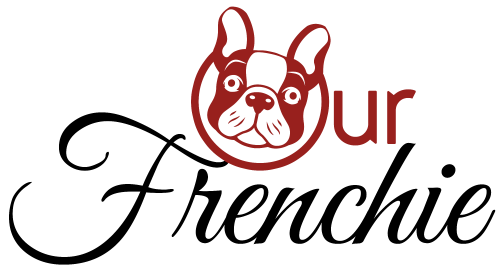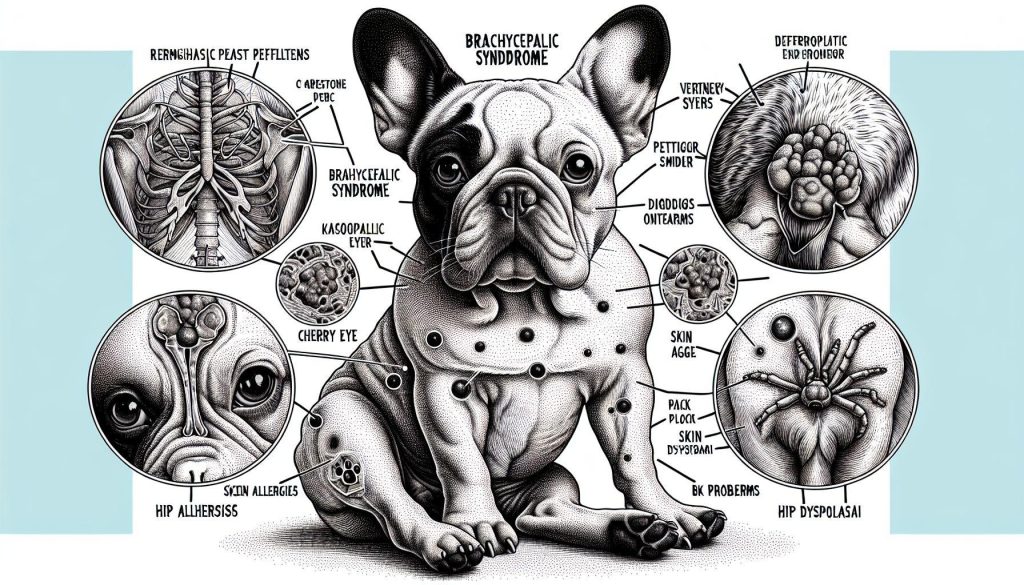About
The Most Common Health Issues in French Bulldogs
Page Contents
French Bulldogs, with their distinctive bat-like ears and charming personalities, have become one of the most popular dog breeds worldwide. Though,their unique physical attributes come with a range of health challenges that potential and current owners should be aware of. This article delves into the most common health issues facing French Bulldogs, from breathing difficulties to skin problems, offering insights into their causes, symptoms, and management. Understanding these concerns is crucial for ensuring the well-being and longevity of these beloved companions, allowing them to lead happy and healthy lives.
Breathing Challenges in French Bulldogs
French Bulldogs are beloved for their charming personalities and distinctive appearance, but their unique physical traits can predispose them to certain health challenges, particularly with breathing. the breed’s signature flat face, or brachycephalic structure, often results in a condition known as Brachycephalic Obstructive Airway Syndrome (BOAS). This condition can lead to difficulties in breathing, especially during exercise or in hot whether. Owners may notice symptoms such as snoring, wheezing, or labored breathing, which can significantly impact the dog’s quality of life.
managing these breathing difficulties requires careful attention and proactive care.Here are some strategies that can definitely help:
- **Weight Management**: Keeping your French Bulldog at a healthy weight can reduce the strain on their respiratory system.
- **Controlled exercise**: Avoid strenuous activities, particularly in hot and humid conditions, to prevent overheating.
- **Regular Vet Check-ups**: Routine veterinary visits can help monitor the dog’s respiratory health and catch any issues early.
- **Surgical Interventions**: in severe cases,surgical procedures might potentially be recommended to improve airflow and alleviate symptoms.
Understanding and addressing these challenges is crucial for ensuring the well-being of your French Bulldog. By being informed and vigilant, owners can help their furry companions lead healthier and more comfortable lives.
Skin allergies and Irritation Solutions
French Bulldogs are prone to various skin allergies and irritations, often triggered by environmental factors, food, or contact allergens. These issues can manifest as itching, redness, and inflammation, causing discomfort for your furry friend. to manage and alleviate these problems, it’s crucial to adopt a proactive approach.
Begin by identifying potential allergens in your dog’s surroundings. Common culprits include dust mites, pollen, and certain cleaning products. Regularly clean your home and wash your dog’s bedding to minimize exposure. For food-related allergies, consider a hypoallergenic diet or consult with a veterinarian to identify specific triggers. **Omega-3 fatty acid supplements** can also be beneficial in reducing inflammation and promoting healthier skin.
- **Regular grooming**: Bathe your French Bulldog with a hypoallergenic shampoo to soothe irritated skin and remove allergens.
- **Topical treatments**: Use vet-recommended creams or ointments to provide relief from itching and irritation.
- **Consult a veterinarian**: If allergies persist, seek professional advice for potential allergy testing or prescription medication.
By maintaining a clean environment, offering a balanced diet, and utilizing appropriate skincare products, you can significantly reduce the frequency and severity of skin allergies in your French Bulldog. This not only enhances their comfort but also contributes to their overall well-being.
Digestive Disorders: Tips for Prevention
French Bulldogs, with their charming personalities and distinctive appearance, are unfortunately prone to various digestive disorders. To help prevent these issues, it’s essential to focus on a balanced diet and proper feeding habits. **Quality over quantity** should be the guiding principle when selecting food. Opt for high-quality dog food that is rich in essential nutrients and free from artificial additives. Look for options with a balanced mix of proteins, carbohydrates, and fats to support their overall health.
**Feeding practices** also play a critical role in preventing digestive problems. Consider the following tips:
- Regular Mealtimes: Establish a consistent feeding schedule to regulate their digestive system and prevent overeating.
- Portion Control: Measure out appropriate portions to avoid obesity, which can exacerbate digestive issues.
- Slow Feeding: Use slow-feed bowls or puzzle feeders to encourage slower eating, reducing the risk of bloat and indigestion.
In addition to diet,ensure your French Bulldog has access to **fresh water** at all times. Hydration is crucial for healthy digestion and can definitely help prevent constipation. Regular exercise is also beneficial, as it promotes a healthy metabolism and aids in maintaining an optimal weight. Lastly, always consult with a veterinarian for personalized advice, especially if you notice any signs of digestive distress such as vomiting, diarrhea, or loss of appetite.
Hip Dysplasia: Recognizing the Signs
Hip dysplasia is a prevalent concern for French Bulldogs, frequently enough leading to discomfort and mobility issues. This condition occurs when the hip joint doesn’t fit snugly into the hip socket, causing wear and tear over time. Recognizing the signs early can help manage the condition effectively and ensure your furry friend maintains a good quality of life.
**Signs to look for include:**
- Limping or Lameness: Your French Bulldog may begin to limp or show signs of lameness, particularly after exercise or play.
- Difficulty Rising: Noticeable struggles when getting up from a lying or sitting position can indicate discomfort in the hip area.
- Reluctance to Jump or Climb Stairs: Avoidance of activities that were once routine, such as jumping onto furniture or climbing stairs, can be a red flag.
- Decreased Activity Level: A reduction in enthusiasm for walks or playtime may be a subtle hint of underlying pain.
If you observe any of these signs, it’s crucial to consult with a veterinarian for a extensive evaluation. Early intervention can include lifestyle changes, physical therapy, or medication to alleviate discomfort and slow the progression of hip dysplasia. By staying vigilant and responsive to your dog’s needs, you can help them lead a more comfortable and active life.
Eye Problems: Prevention and Care
French Bulldogs are predisposed to a variety of eye problems due to their distinctive facial structure and prominent eyes. **Cherry eye**, **entropion**, and **corneal ulcers** are among the most common issues. To help prevent these conditions, regular eye examinations by a veterinarian are crucial. Early detection can prevent minor issues from escalating into serious problems. Additionally, keeping the area around the eyes clean and free of debris can reduce the risk of irritation and infection.
Proper care involves a combination of routine maintenance and prompt action when symptoms appear. Owners should watch for signs such as excessive tearing, redness, or squinting, which may indicate discomfort or infection. If these symptoms are noticed, a visit to the vet is recommended. **Daily care tips** include:
- Gently wiping the eyes with a damp,soft cloth to remove any discharge.
- Using vet-approved eye drops to keep the eyes moist, especially in dry climates.
- Ensuring that the dog’s environment is free from irritants like dust and smoke.
By staying vigilant and maintaining a regular eye care routine, french Bulldog owners can help minimize the risk of eye problems and ensure their pets remain comfortable and healthy. Always consult with a veterinarian before trying new treatments or products to ensure they are safe and suitable for your dog’s specific needs.
Managing Obesity in French Bulldogs
french Bulldogs, with their charming personalities and adorable looks, are prone to obesity due to their compact size and low energy levels. Effective management of this issue is crucial for their overall health and well-being. **Regular exercise** is essential, but it should be tailored to their needs; short walks and interactive play sessions can help maintain a healthy weight without overexerting them.
**Dietary management** is equally importent. Opt for high-quality dog food that is rich in nutrients but low in calories. It’s vital to monitor portion sizes and avoid overfeeding. treats should be given sparingly and can be replaced with healthier options like carrot sticks or apple slices.Implementing a balanced diet will not only help in weight management but also improve their energy levels and overall health.
- Ensure regular vet check-ups to monitor weight and overall health.
- Consider a feeding schedule to avoid free-feeding and excessive snacking.
- Engage in mental stimulation activities to keep them active and prevent boredom-related eating.
By combining a structured diet, regular exercise, and consistent health monitoring, you can effectively manage obesity in French Bulldogs, ensuring a happier and healthier life for your furry friend.
Dental Health: Essential Care Tips
French Bulldogs,with their charming expressions and compact size,require diligent attention to their dental health. Regular dental care is crucial to prevent common issues such as periodontal disease, which is prevalent in small breeds. here are some essential tips to ensure your French Bulldog’s teeth and gums remain healthy:
- Brush Regularly: Aim to brush your French Bulldog’s teeth at least 2-3 times a week using a toothbrush designed for dogs and canine toothpaste. This helps remove plaque and prevent tartar buildup.
- Choose Dental Chews: Provide dental chews that are specifically formulated to reduce plaque and tartar. These chews also offer the added benefit of keeping your dog entertained.
- Schedule Professional Cleanings: Regular veterinary check-ups should include dental examinations. Depending on your dog’s needs, the vet may recommend professional cleanings to maintain optimal oral health.
- Monitor for Signs of Dental Issues: Keep an eye out for symptoms such as bad breath, red or swollen gums, and difficulty eating, which may indicate dental problems needing immediate attention.
By integrating these practices into your french Bulldog’s routine, you can significantly reduce the risk of dental issues and ensure they enjoy a healthy, happy life. Remember, maintaining oral health is not just about aesthetics; it’s a vital component of your pet’s overall well-being.
wrapping Up
understanding the most common health issues in French Bulldogs is crucial for any current or prospective owner. By being informed about conditions such as brachycephalic syndrome,hip dysplasia,and skin allergies,you can take proactive steps to ensure your furry friend leads a healthy,comfortable life.Regular veterinary check-ups, a balanced diet, and attentive care are essential in managing these health challenges. With the right approach, you can enjoy many happy years with your beloved french Bulldog, knowing you’re doing your best to support their well-being.

